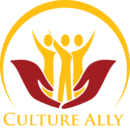School/Non-Profit Pricing
October 29, 2021 2021-11-17 12:53School/Non-Profit Pricing

Antiracism Workshops for School-Based Counseling Providers
Counseling and Behavioral Health programs within K-12 schools offer essential services that address the needs of our socially and culturally diverse students. To help equip therapists in school settings, we have designed a series of workshops and consultation groups that empower these clinicians to engage in effective and culturally responsive interactions.

Culturally Responsive Counseling Series
Our Culturally Responsive Counseling Series provides the foundational knowledge, tools, and practices for culturally responsive counseling. These workshops build personal cultural awareness for participants, a crucial first step in working effectively with socially and culturally diverse clients. Participants explore their cultural identities, biases, and experiences as racialized beings. They also learn more about the process of racialization and how racial structures impact groups and individuals. Considering the anxiety that issues of race arouse, these workshops also incorporate mindfulness practices and tools for managing intense emotions and challenging discussions.

Culturally Responsive Counseling: Addressing Cultural Biases that Influence Clinical Practice
Mindfulness, Meditation and Somatic Healing Series
Our Mindfulness, Meditation, and Somatic Healing series explores how clinicians can use mindfulness to transform their capacity for engaging race and racism in their clinical practice. In this series, participants (1) explore how race and racism currently manifest and impact individuals (2) discover how mindfulness can help therapists work more effectively with issues related to race and racism, and (3) identify and practice specific mindfulness tools to manage the intensity and difficulty of working with race.
After each workshop, participants are asked to intentionally explore how they can incorporate these ideas and tools into their current practice. Participants then engage in an Antiracism Consultation Group. During the group, select participants present cases to explore how these concepts play out in their current caseload. These groups have a dual focus: (1) personal self-exploration and development regarding issues related to race and racism and (2) professional development of culturally responsive counseling skills to effectively and ethically address race and racism in one’s clinical practice. These groups are open to clinicians of all races and ethnicities. This space is intended to be gracious, not condemning. It will entail uncomfortable learning, with the ultimate goal of supportive and constructive interactions.

Enhancing Racial Emotional Intelligence and Awareness Through Mindful Practice
School - Non-Profit Pricing
2 Hr Workshop
- 1,500
Up to 50 participants
- 2,025
50+ Participants
3 Workshop Series
(10% discount if ordering 3)
- 4,050
Up to 50 participants
- 5,467
50+ Participants
4 Workshop Series (15% discount if ordering 4)
- 5,100
Up to 50 participants
- 6,885
50+ Participants
Antiracism Clinical Consultation Group for
Organizations
- 1,200
includes unlimited participants and structured case presentations
Workshop and Consultation Group
- 2,500
for unlimited participants and structured case presentations
Organizational Consulting Services
- 350/hour
Contact Us Today to
Book Your Training
Payment, Refund and Cancellation Policy
A 30% deposit for the total cost of an individual workshop, workshop package, or consultation group is due at the time of booking. This deposit is non-refundable. The remaining balance is due 48 hrs before the date of the service.







